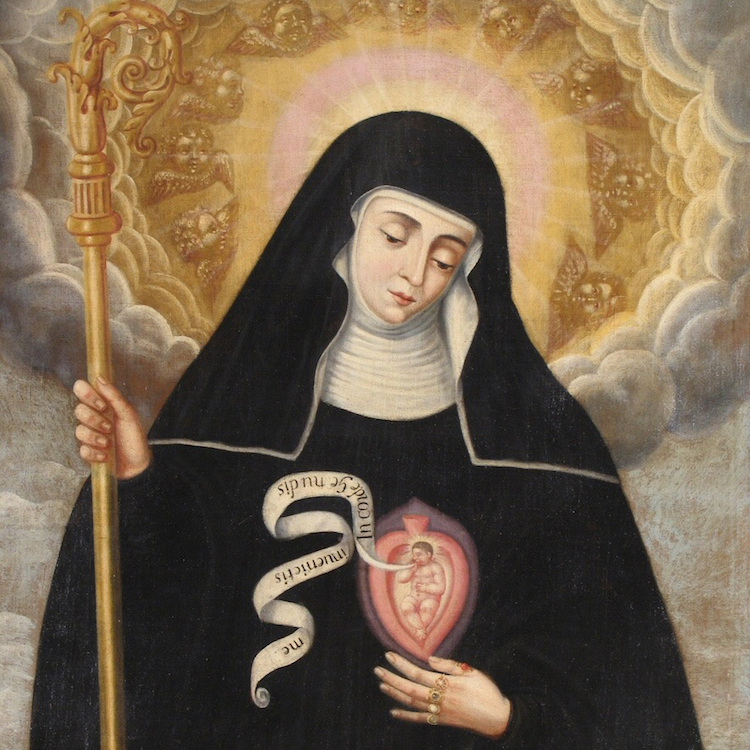Once there was a six-year-old girl named Molly who was suffering from terminal cancer; she had only a short time left to live, and the disease had been very hard on her. She was hooked up to tubes and machines, and most of her beautiful blond hair had fallen out—but even so, Molly was a small miracle, for her suffering did not take away her joy or rob her of her beautiful smile.
One day, however, as the hospital chaplain was visiting her, he noticed that she was not in her usual cheerful state. He assumed it was due to the intense pain the disease was causing, but when he saw tears forming in her eyes, he asked, “Molly, what’s wrong?” The girl surprised him by saying, “I’m going to have a new body soon in heaven.” The chaplain answered, “That’s right, Molly, but that’s happy news. Why are you crying?” With an amazing degree of faith and compassion, the six-year-old girl said, “Because I feel sorry for Jesus. I’m going to have a new body, but Jesus will always have His scars” (Deffner, Seasonal Illustrations, p. 47).
Molly didn’t yet understand that the five wounds Jesus bears on His risen Body are actually marks of honor, but she did realize that if we follow the Lord of life, we will share in His glorious Easter victory. A six-year-old girl understood and believed this central Christian teaching, but many times when we face the trials and sorrows of life, it seems our own faith isn’t nearly as strong. Nevertheless, we are called to trust in Christ in good times and in bad, in our joys and in our sorrows. Jesus doesn’t necessarily ask us to share His scars, but He does want us to experience and share the love that made Him suffer and die for us.
Even though some of the women and other disciples told the apostles that they had seen the Risen Lord, when He appeared to them on the evening of Easter Sunday, they were startled and terrified—to the point of thinking they were seeing a ghost. That’s why Jesus (Lk 24:35-48) told them to look at His hands and feet, seeing for themselves the wounds caused by the nails which held Him to the cross; that’s also why He ate a piece of fish in their presence. Jesus wanted them to understand not only that He was alive in a new and wonderful way, but also that those who repented of their sins and accepted salvation in His Name would be able to share in this new life.
Moreover, the apostles themselves were to be witnesses of this glorious and amazing truth. Jesus was not angry with the apostles for abandoning Him, but merciful; He came not to spread guilt, but to share His peace. In his preaching, St. Peter (Acts 3:13-15, 17-19) echoed this theme of forgiveness. Instead of accusing the people or blaming them for Christ’s death, Peter excused them, saying that they had acted out of ignorance—but he also challenged and invited them to repent and be baptized, so that they might be forgiven and saved. The Good News of salvation isn’t based on fear, but on mercy and love. As St. John (1 Jn 2:1-5) tells us, we as sinners are restored to grace through Jesus Christ. The sign that we are accepting this grace and responding to His love is our sincere effort to keep His commandments; in this way we truly experience Christ’s love and allow it to become perfected in us.
If someone were to ask, “What’s the best way to guarantee that we’ll experience suffering, heartache, and disappointment in life?,” the answer would be very simple: love other people. If someone else were then to ask, “What’s the best way to guarantee that we’ll experience joy, satisfaction, and meaning in life?,” again the answer would be very simple: love other people. We’re called to love God without reservation, and He will never fail us; we’re also called to love all the people in our life, but they will often disappoint us, hurt us, or fail to be who we need them to be—just as we will often fail them in this regard. Jesus expects us to open ourselves to love anyway. Love deepens our capacity for both joy and sorrow; it makes it possible for us to experience more happiness, and more suffering, than would otherwise be the case. Our Lord doesn’t promise His followers that they’ll only know happiness in this life; rather, He promises that He’ll be with them in their suffering, that this suffering can serve a greater purpose, and that it will come to an end, even as their joy lasts for all eternity. Here and now we are called to begin experiencing and sharing the love that prompted Him to suffer and die on our behalf.
This means, among other things, trying to have a compassionate heart, letting ourselves be touched when we see others suffering, and doing what we can to help them—even if it’s nothing more than promising to pray on their behalf. It means giving other people the benefit of the doubt, instead of automatically assuming the worst of them or refusing to give them a second chance when they offend us. It means being willing to stand up for our moral and religious beliefs, even if this might result in misunderstanding, criticism, or unpopularity. It means asking for God’s help and guidance, even if we might not like what He’s asking us to do, or if we fear the sacrifice He wants from us might be too difficult or painful. It means trusting in Christ’s presence and love for us, even when things don’t make sense, or our prayers don’t seem to have an answer, or when our cross seems too heavy to bear.
Only a very few people in the Church’s history have received the stigmata—actually physically experiencing the wounds of Christ in their own hands and feet. Most of us, however, can expect to share in Christ’s wounds to some degree in a spiritual sense: suffering because we love other people, suffering because we’re trying to do what’s right, and suffering because we’re taking up our cross and following Jesus each day. This suffering might be something as simple as a stranger criticizing us or a friend rejecting us because we’re remaining true to our moral values; it might be something as terrible and heart-rending as seeing an innocent and beloved child die a slow and painful death from cancer. As six-year-old Molly understood, however, the ultimate symbol of Christ’s life is not the cross of Good Friday, but the empty tomb of Easter Sunday. Jesus is our Crucified Lord, but even more importantly, He is our Risen Lord—and if we open our hearts to His love, our share in His victory is guaranteed.








